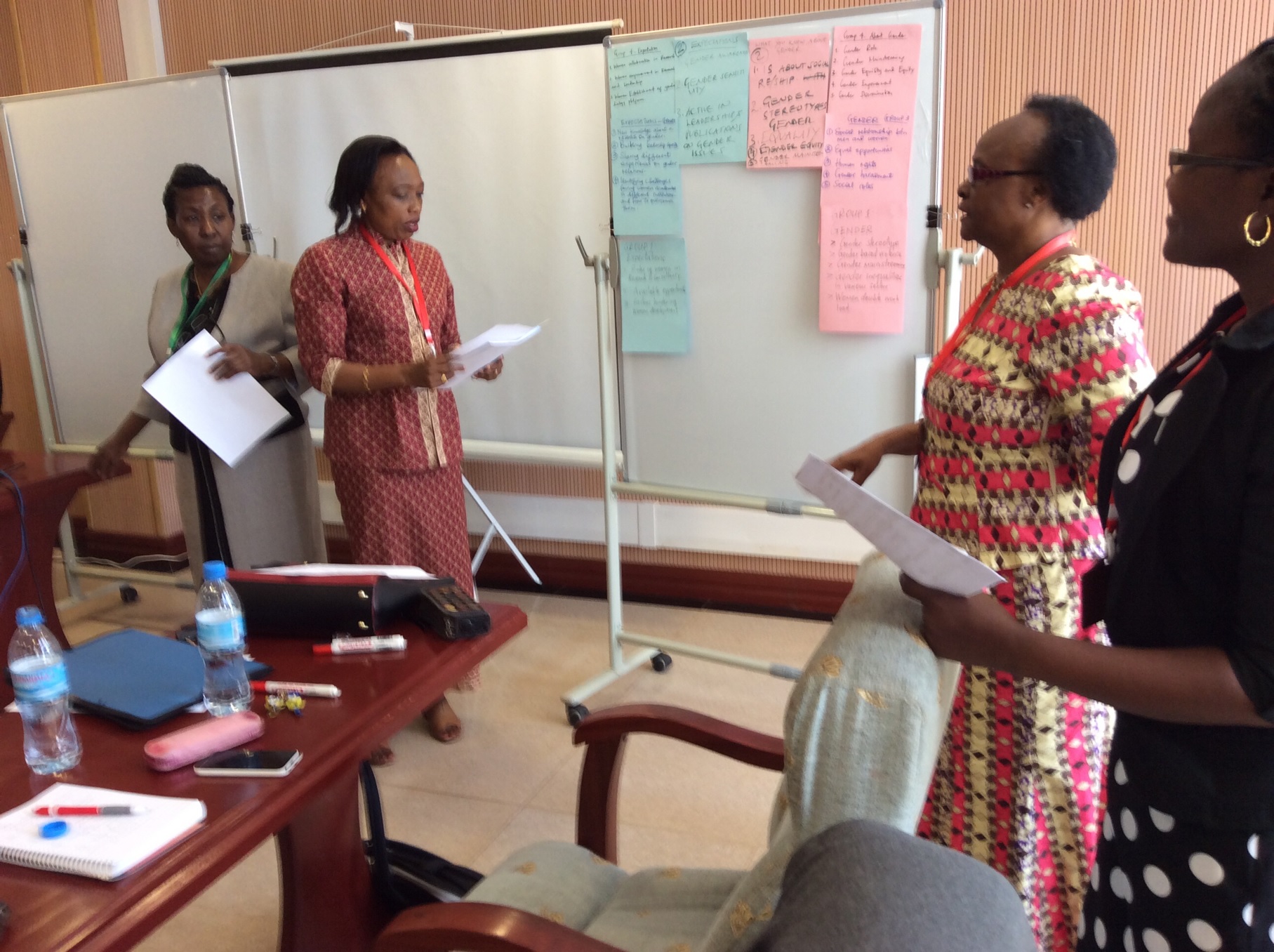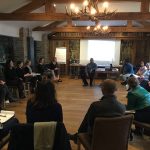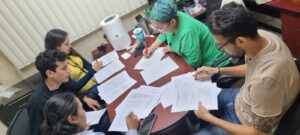
Gender mainstreaming in higher education: learning from our experiences
– Blog post by Professor Flora Fabian, University of Dodoma, Tanzania
In this blog, Professor Flora Fabian from the University of Dodoma, Tanzania shares her experience of working with INASP and explains how an AuthorAID workshop helped the process of mainstreaming gender issues at her university in Tanzania.
INASP has recently launched Gender Mainstreaming in Higher education toolkit, which is an easy-to-use resource for institutions interested in tackling gender inequality in higher education.
I am very delighted to see this publication out at a very crucial time for us. This toolkit builds on our experiences in training on gender awareness for academics. It contains many of the tools that we used during the gender workshop held at the University of Dodoma in Tanzania in August 2015. The experience we gained in this workshop has been an inspitation for us to develop this toolkit.
As a group of female academics at the University of Dodoma, we had noticed inequalities in our institution. We also noticed that of the 694 current academic staff members only 175 are female. In the whole university, only five Tanzanian women have reached senior academic levels (along with five non-Tanzanian women who are expetriates on contract), and there are no women in a senior leadership or College principal positions.
Through our experience of doing research-writing workshops with INASP’s AuthorAID project, we learned that workshops can be the first step to bring about institutional change. Working with INASP motivated us to work towards addressing the gender gap at our university.
The main objectives of the resulting gender workshop were to create awareness of gender issues, to sensitize women academics on the importance of creating a balance between work and home, and also to initiate a process that will lead to establishing a gender platform and fomulating a gender policy for UDOM. We named the workshop “Getting out of the Box” as a message for women to work to get out of their comfort zones.
The workshop was lively and participatory and almost every participant had something to present during the workshop. In fact, it took a mixed approach: lecture presentations, small group discussions and plenary sessions.
It was interesting to note that all participants agreed that their awareness has changed regarding gender issues after the workshop. In addition, they also revealed that they learnt a lot about the various social roles prescribed by society. For example, most women would go about taking care of everyone in the family as priority number one, which could jeopardize time spent on academic activities such as teaching and conducting research.
We found that the workshop was an eye-opener for the participants. It was helpful in realizing that most women often have to multi-task which could be avoided by finding alternative helpers or sharing tasks with partners or spouses. A session named ‘balancing the baskets’ was helpful in learning to balance various social roles.
At the end of the gender workshop, we formulated an action plan. Through this action plan it was concluded that follow-up activities will include monitoring and evaluation and conducting a baseline study through Focus Group Discussions. Currently we are conducting data analysis and finalizing a report on these sessions.
The results from the study revealed that there is a lack of awareness on gender and gender concepts at the university. Skewed representation of women in some fields at the University as well as the multiple roles and special needs were reported as gender issues impacting women’s academic progress. The results will be used to inform and make the case for the formulation of the gender and sexual harassment policy and establishment of a gender unit at our university.
The next crucial steps for us are to sensitize UDOM community from top leadership on gender concepts and gender mainstreaming so that we will be able to develop a gender policy and establish a gender platform at UDOM and to engender curricula.
I thank INASP for its continued support to us and I hope that our combined effort will bring new ways of tackling gender issues in higher education.

 Previous Post
Previous Post Next Post
Next Post



Dear Professor Flora Fabian,
Thank you very much for this insightful piece. You will never know how much you have inspired us over here!
There is much we can learn from each other. Many thanks to Ruth of INASP for connecting us, making it possible for us to follow your path here in Somalia. We have learned so much from the the case of the Univ of Dodoma and the good work you are doing over there on mainstreaming gender in policies, management, etc. There are many obstacles female lecturers and students face in studying or working in higher education institutions in Africa and many other parts of the world but they can not be addressed until they are given due weight and attention.
We watch your video on Youtube very often. We are going to share this with the rest of the women in ….and men in our network. We remain grateful.
All the best.
Sahro, your sister in Somalia
Dear Sahro and colleagues, Thanks to INASP for the support and inspiration, it made this possible.
Sahro you have said very nice words and very true we need to support each other, work together and shall move a distance. The team at UDOM is very much looking forward to work with you and other who might find this inspirational.
Thanks to the team and all
Flora